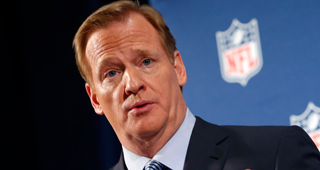For the past 13 years, the NFL has stood behind research they claimed was based on a full accounting of all concussions diagnosed by team physicians between 1996 and 2001.
The NFL had formed a committee in 1994 that would ultimately issue a number of research papers that downplayed the danger of head injuries.
More than 100 diagnosed concussions were omitted from the studies, including some injuries to the likes of Steve Young and Troy Aikman.
The committee then calculated the rates of concussions using the incomplete data, making them appear less frequent than they actually were.
NFL officials acknowledged that “the clubs were not required to submit their data and not every club did.” That should have been made clearer, the league said in a statement, adding that the missing cases were not part of an attempt “to alter or suppress the rate of concussions.”
One member of the concussion committee, Dr. Joseph Waeckerle, said he was unaware of the omissions. But he added: “If somebody made a human error or somebody assumed the data was absolutely correct and didn’t question it, well, we screwed up. If we found it wasn’t accurate and still used it, that’s not a screw-up; that’s a lie.”
In 2013, the NFL agreed to a $765 million settlement of a lawsuit in which retired players accused league officials of covering up the risks of concussions.
Some retired players have likened the NFL’s handling of its health crisis to that of the tobacco industry, which was notorious for using questionable science to play down the dangers of cigarettes.
In a letter to The Times, a lawyer for the league said, “The NFL is not the tobacco industry; it had no connection to the tobacco industry,” which he called “perhaps the most odious industry in American history.”
The vast majority of omitted concussions identified by The Times were included in the NFL’s public injury reports, meaning that medical staffs had made the diagnoses and reported them to the league.
Neil Austrian, a former N.F.L. president, had previously run an advertising agency that under his leadership reversed its ban on taking tobacco clients. He called Philip Morris “an honorable company that sets high standards.” It was during his tenure at the NFL that the concussion committee was created.
Alan Schwarz, Walt Bogdanich, Jacqueline Williams/New York Times


